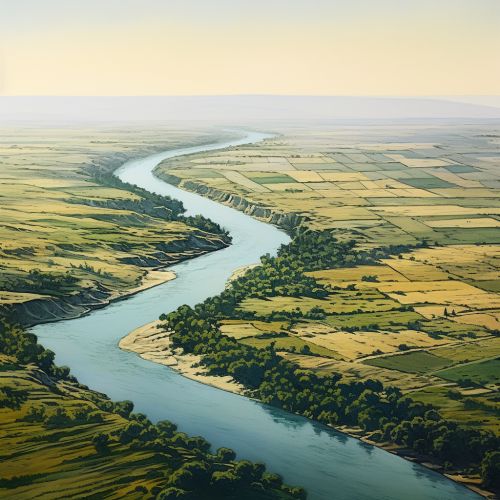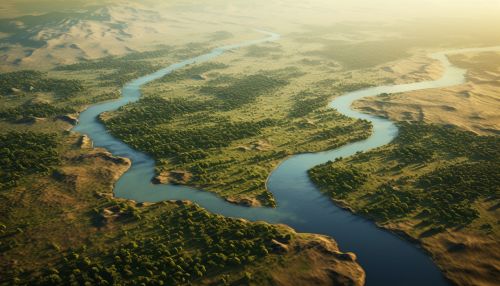Iraq
Geography
Iraq, officially known as the Republic of Iraq, is a country located in Western Asia. It is bordered by Turkey to the north, Iran to the east, Kuwait to the southeast, Saudi Arabia to the south, Jordan to the southwest, and Syria to the west. The capital, and largest city, is Baghdad. Iraq has a narrow section of coastline measuring 58 km on the northern Persian Gulf.


The country's topography can be divided into four regions: the desert in the west and southwest, the rolling upland between the upper Tigris and Euphrates rivers (also known as Al-Jazira), the highlands in the north and northeast, and the alluvial plain through which the Tigris and Euphrates flow.
History
Iraq's history dates back to the Sumer civilization, one of the oldest in the world, which developed a writing system and built large city-states. The Sumerians were followed by the Akkadian Empire, the Babylonian Empire, and the Assyrian Empire. Iraq was later part of the Persian Empire, and after that, it was conquered by the Greek Empire under Alexander the Great.
In the 7th century, Iraq was conquered by the Islamic Caliphate, bringing a period of economic prosperity and cultural golden age known as the Islamic Golden Age. The Mongols invaded in the 13th century, destroying many of the country's cities and infrastructure.
In the 20th century, Iraq gained independence from the Ottoman Empire as a kingdom in 1932. A "republic" was proclaimed in 1958, but in actuality a series of military strongmen ruled the country, the last being Saddam Hussein. Significant economic growth occurred during the 1970s, but the Iran–Iraq War in the 1980s and the Gulf War in the 1990s both caused significant loss of life and economic disruption.
Politics
Iraq is a federal parliamentary republic, with the President as the head of state and the Prime Minister as the head of government. The government is based on the Constitution of Iraq, which was approved by a referendum in 2005.
The country's political system has been in a state of flux since the fall of Saddam Hussein during the 2003 invasion by a U.S.-led coalition. Despite a return to nominal civilian rule in 2005, political stability remains elusive, and the country's security situation has been complicated by sectarian tensions, corruption, and the rise of the Islamic State of Iraq and the Levant (ISIL).
Economy
Iraq's economy is dominated by the oil sector, which provides about 85% of government revenue and 80% of foreign exchange earnings. The lack of development in other sectors has resulted in 18%-30% of Iraqis being unemployed and a poverty rate of 25%.
Iraq's economy has been severely affected by war and civil unrest since the early 1980s. The 1980s war with Iran, the Gulf War, and the 2003 invasion of Iraq have all had devastating impacts on the country's economy and infrastructure.
Culture
Iraq is rich in culture and history; it is often considered the birthplace of civilization. The country's cultural heritage includes ancient sites from the Mesopotamian era, Islamic architecture, and vibrant traditions of music, dance, and visual arts.
Iraqi cuisine has a long history going back some 10,000 years – to the Sumerians, Akkadians, Babylonians, Assyrians, and Persians. Meals begin with appetizers and salads – known as Mezza. Some dishes include Kebab (often marinated with garlic, lemon, and spices, then grilled), Gauss (grilled meat sandwich), and a dessert called Kleicha (a sort of cookie filled with dates and served with tea).
